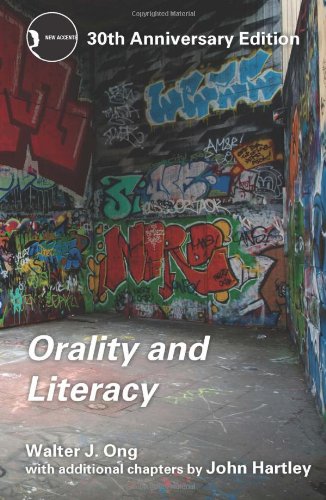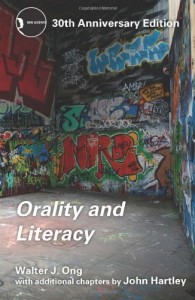I’m writing a piece of my dissertation proposal where I theoretically explain how writing leads to cognitive and emotional development, and what better place to reference than Walter J. Ong’s essay Writing Restructures Consciousness, in Orality and Literacy (1982/2002).
About every other page there is a word that I don’t know, or at least can’t define off hand.
Below are some of the fun words I’m finding. Also, it seems Google has picked up on this digital humanities trend popularized by Moretti and started sharing graphs of word use over time, some of which I’ve included below.
Here’s a good one, Ong writes: “Texts are inherently contumacious”.
contumacious
“/ˌkänt(y)əˈmāSHəs/ stubbornly or willfully disobedient to authority”.

What’s interesting about this point is the contrast to oral language, once a text is printed it can’t be refuted, at least not in the immediate moment. Interestingly, in a text like a blog there is often a space for comments where people can immediately refute or support a text.
a fortiori
(thanks Merriam)
“\ˌā-ˌfȯr-shē-ˈȯr-ˌī, ˌä-ˌfȯr-shē-ˈȯr-ē, -ˌfȯr-tē-\ : with greater reason or more convincing force”
“A fortiori, print is vulnerable to these same changes” (p. 79).
“/kwēˈesnt,kwī-/ in a state or period of inactivity or dormancy” (p. 90).
“All script represents words as in some way things, quiescent objects, immobile marks for assimilation by vision”.

In contrast to script, or written word, which is quiescent, oral language is evanescent, or fleeting.
Ong goes on to detail how writing has specific effects on noetic processes (103).
“/nōˈetik/ of or relating to mental processes”.

I remember an interview with Walt Clyde Frasier where he said that he picks out words from the Times each day to try out on his Knicks broadcast. Try using some of these words from Writing Restructures Consciousness in your daily life and you are sure to sound magniloquent (p.102).

